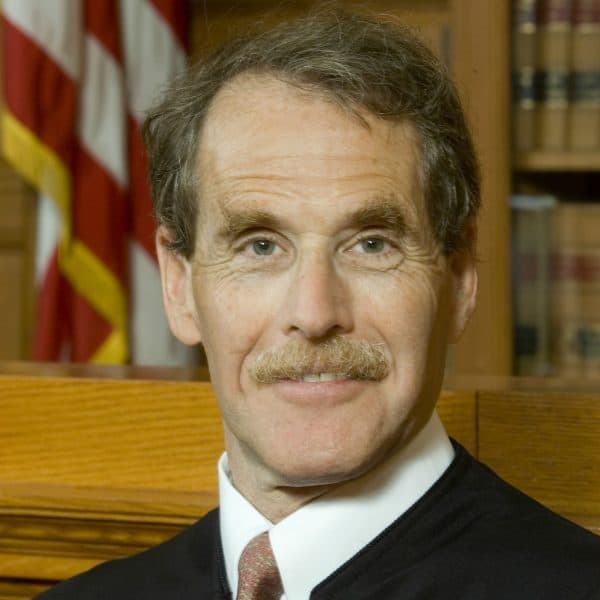Advertisement
Commentary
People Of Good Character, At Every Level Of Government, Are The Antidote To Trump

Attorney General William Barr’s eagerness to fix the Roger Stone sentencing recommendation as though it were a traffic ticket — and doing so within hours of marching orders provided in a late-night tweet from the president — is simply the latest in a pattern of squalid but legal behavior that began with his whitewashing of the Mueller report.
Barr spent months trying unsuccessfully to gratify Trump with a federal grand jury indictment against former FBI Deputy Director Andrew McCabe, until a federal judge finally compared the president’s involvement to a “banana republic.” Barr is currently colluding with Rudy Giuliani to legitimize the CrowdStrike conspiracy theory, and has just announced that Michael Flynn’s confession of lying to the FBI may have been obtained by trickery.
These actions, while certainly devoid of intellectual honesty or even common sense, are also not illegal.
In fact, most of the damage inflicted by this president, his administration, and the political party that cowers in his shadow is neither strictly illegal nor unconstitutional. The slow but steady evisceration of the Justice Department’s independence, sustained for one and one-half centuries by men and women of principle and good will, is closely modeled on the purge of professional civil servants at the State Department.
Nearly all of the Trump administration’s wrongdoing, from environmental degradation, to a $1 trillion deficit, to delayed federal relief funds for Puerto Rico, to an immigration policy based on fear and ignorance — all essentially legal.
Like it or not, the American experiment depends on the stewardship of each succeeding generation.
Like it or not, the American experiment depends on the stewardship of each succeeding generation. Without men and women of character who are dedicated to goals weightier than personal power, wealth and self-interest, our founding documents, however eloquent and well-conceived, are simply words. Neither the courts, the free press nor, quite obviously, a GOP-controlled Senate are preventing our transformation into an unequal, intolerant and autocratic state.
Hand wringing aside, what can we do?
We must look to the states. Several legal principles related to federalism are helpful in this regard.
States cannot deny rights to their citizens guaranteed by the federal constitution, but are free to expand them under their own constitutions. A prime example is the ground-breaking legalization of same-sex marriage in Massachusetts, based on an interpretation of our state constitution by the Supreme Judicial Court.
States can address many issues independently so long as the federal government hasn’t created an overriding national scheme. In the words of Louis Brandeis, “It is one of the happy incidents of the federal system that a single courageous state may, if its citizens choose, serve as a laboratory.” Areas in which the states can be proactive include consumer protection, the environment, voter protection, gun safety and, as demonstrated in Massachusetts, health care.
The impact of state action can be substantial. California, with the world’s fifth largest economy, has reached an agreement on emissions standards with major automobile manufacturers even as governors of 24 states, representing more than 50% of the U.S. population, have called for a stronger national clean car standard.
State attorneys general are immune from the politicization of the federal justice system. In other words, Barr has no authority to tell Maura Healy what to do (though in search of amusement, we can hope he would try). Likewise, the president’s pardon power does not extend to convictions secured under state laws. Prosecutors in New York are currently taking advantage of that autonomy.
Good people at every level are the antidote to the dark and depressing spectacle that has become the federal government.
These facts highlight the significance of elections and appointments at the state level. State judges, law enforcement officers, elected officials and administrative appointees can play an important part across the country not only in upholding the rule of law, but also protecting democratic norms.
Good people at every level are the antidote to the dark and depressing spectacle that has become the federal government. For models we need only look to the four prosecutors who resigned from the Roger Stone case, or the good public servants who testified in Congress during the impeachment proceedings, or the 2,000 (and counting) former federal prosecutors, including Don Ayer, the deputy attorney general under George H.W. Bush, who have called for Barr’s immediate resignation.
The Republicans in the Senate may have ignored Mitt Romney’s recent example of integrity, but the example won’t go away. A distinctly less craven group, the 1,000-member strong Federal Judges Association headed by a George W. Bush appointee, U.S. District Judge Cynthia M. Rufe, is convening an emergency meeting this week to address the administration’s intervention in politically sensitive cases.
Even Bill Barr can feel the heat. His recent complaints about “constant background commentary” from the president are about as convincing as his claim that the timing of his interference with the Stone sentencing recommendation was purely coincidence. His carefully phrased remark that Trump "has never asked me to do anything in a criminal case," is meaningless in the context of relentless public pronouncements from the White House, but also reveals defensiveness.
The term “Constitutional crisis” has been in fashion the past three years, and it is easy to understand why. But the phrase is misplaced. We cannot rely solely on the Constitution or the institutions of government it prescribes. What we are facing is a test of character.
Yuval Levin, editor of the conservative quarterly National Affairs, has said it well: “... character matters, and concerns about character are neither style nor aesthetics, but the very substance of leadership.” Character is not a partisan issue.
